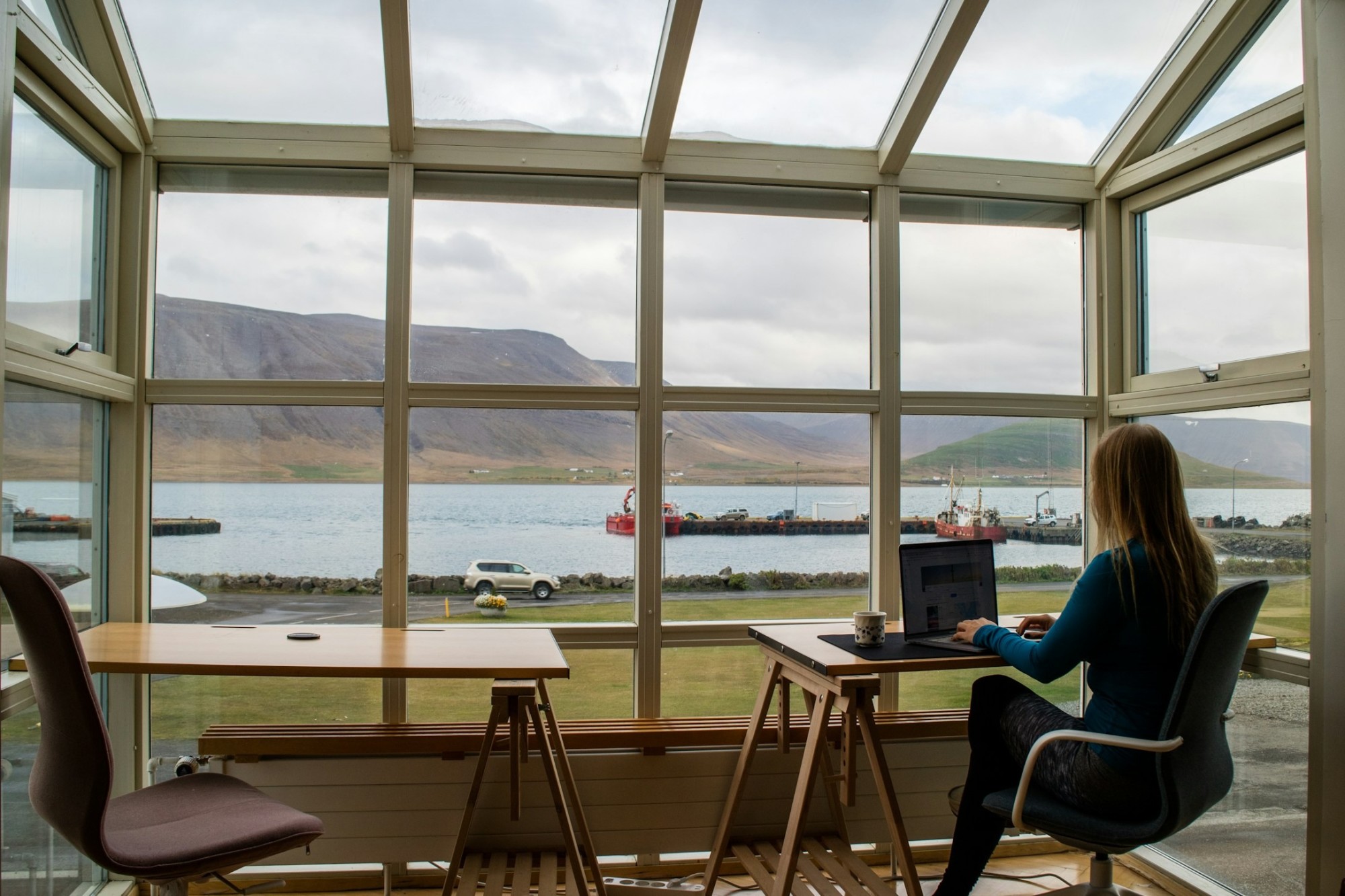
If you’re just learning how to become a travel agent, you may not have encountered a destination management company, or DMC, yet. As you continue to book clients, though, the relevance of this boots-on-the-ground resource will become increasingly apparent, especially as you book trips to unfamiliar places.
Read on for a breakdown of all the benefits of working with a DMC, plus a few tips for selecting the right DMC for your clients.
First, what is a destination management company (or DMC)?
A destination management company works as an intermediary between a travel advisor and various vendors and experience providers in a set location (usually a specific city or area, but sometimes entire countries or regions).
Read more: Why Travel Advisors Use DMCs — and Why They Love Them
What services do DMCs provide? What’s the role of a DMC as far as travel advisors are concerned?
Destination management companies are subject-matter experts and confidence boosters for travel advisors. Rather than having to conduct a monumental amount of research on a destination’s history, culture and offerings — usually from a considerable distance — a travel advisor can place their trust in a local partner at a DMC to provide them with a vetted list of the best vendors, tour operators, event venues…you name it.
The best DMCs will have extensive knowledge of their location and all its client-facing services. For example, they’ll know which tours provide a great experience and which to avoid. In turn, there’s far less risk that your client will have an unsavory experience. The client doesn’t interact with the DMC itself (as a travel advisor, you’ll be the point person), so you get the credit for connecting them with the experience.
Most DMCs also handle transportation arrangements and offer onsite support in case issues arise. This is especially helpful if you have a traveler in a country that’s in another time zone.
DMCs can typically customize a client’s experience at the request of the travel advisor. As a travel advisor, you can work with a DMC to plan as much (or as little) of a trip as you and your client need. For example, you might work with a DMC to plan the full itinerary that includes activities, transportation arrangements and hotel bookings. Or, you might just need to book an activity here and there.
Who hires a DMC: the travel advisor or the client?

Clients rarely interact directly with destination management companies. The only common exception is for DMCs that offer in-house supplier services (some DMCs offer tours, excursions and so on). But even then, clients typically aren’t aware of the DMC-advisor relationship.
Instead, travel advisors work with DMCs to connect clients with services. In fact, many of the bookings you can make as a Fora Advisor are sometimes made through DMCs.
Does the destination management company pay the advisor?
Destination management companies typically offer travel advisors a commission for their services. This is either baked directly into the cost, or sometimes offered at what’s called a “net rate,” which is essentially a wholesale cost with a recommended percentage value to add on top when the client is invoiced. (At Fora, we support our advisors with invoicing and payments).
The client usually pays a lump sum, which will cover all the meals, transportation, lodging and tours from the itinerary.
Our guide to travel agent commissions offers more details on how this works.
Why would a travel advisor work with a destination management company?

Destination management companies make travel advisors’ lives a lot easier, especially when they’re tasked with planning trips to locations with which they’re unfamiliar.
Determining who’s worth trusting from thousands of miles away, and often across language or cultural barriers, is extremely difficult — or at the very least, impractical. Travel advisors can’t — and don’t have to be — experts on every destination in the world (here’s what it does take to become a travel agent, if you’re curious).
Instead, think of it like this: the travel advisor translates the client’s preferences and desires to the DMC, who then helps to make recommendations and arrange logistics accordingly.. In the end, the client gets the best possible outcome.
DMCs also handle much of the on-the-ground logistics, like transportation arrangements and activity reservations, ensuring a seamless end-to-end client experience.
Don’t DMCs and travel advisors provide similar services?
Not exactly. The relationship between a destination management company and a travel advisor is complementary, not competitive. Again, DMCs enable travel advisors to provide their clients with vetted experiences.
While it’s true that a travel advisor can reserve tours and other experiences for their clients, DMCs help facilitate a more cohesive experience. They also make the booking process far easier: travel advisors won’t have to book tours and activities on an ad-hoc basis. Instead, the DMCs handle all of that, and leverage their local connections to ensure the best, most authentic partners are enlisted for a client’s trip.
Working with a destination management company also provides an extra layer of security — both in a literal sense and in terms of enjoying the experience.
You can pick if you want to work with a DMC for a booking, or if you want to do everything yourself. You’ll likely find that you want to work with DMCs for certain types of trips or destinations, and others you’re fine to do without a DMC.
3 key benefits of working with DMC as a travel advisor

We’ve touched on many of the benefits that a destination management company offers travel advisors (and by extension, clients). But here’s a deep dive on the three of the most important aspects.
1. DMCs offer local expertise & knowledge of tours, excursions & hidden gems
Locals know their homes best. A destination management company not only knows which tour vendors offer a quality experience, they know the best time of year to enjoy it, as well as any potential limiting factors (such as the likelihood of bad weather).
Moreover, DMCs have a deep understanding of local culture and relevant languages. And as a travel advisor, you can’t underestimate language or cultural barriers. If critical details — say, a client is allergic to peanuts or can’t walk without assistance — aren’t properly conveyed to the vendor, the experience may be ruined or your client could even be harmed.
DMCs have planned lots of trips for clients to the destination(s) they specialize in, so as a travel advisor, you have an added layer of security that your client will have a great experience (even if it’s the first time you’re booking a client in that destination).
2. DMCs save travel advisors time (and money) researching & networking
Beyond making sure the client receives the best possible experience, destination management companies save travel advisors staggering amounts of time. Searching for vendors can take hours (or longer). Worse, not all suppliers have English-speaking websites or contacts, so you can easily miss out on quality experiences for your client. Working with a DMC eliminates the need to conduct extensive research.
3. DMCs enable travel advisors to offer their clients seamless travel coordination

Google Maps is a wonderful tool that’s perfect for navigating many cities and countries around the world. But the best routes and transportation options aren’t always apparent online.
Travel advisors can use destination management companies to arrange efficient transportation for an itinerary as a whole, as well as between airports, hotels and special attractions.
For example, a tour of Fes, Marrakech and Essaouira is a tried-and-true favorite for a "greatest hits" itinerary in Morocco. It's much easier to have a local DMC make recommendations instead of you trying to piecemeal an itinerary together from afar. In addition, the DMC can help make adjustments to the route if the client suddenly wants to do an add-on visit to the desert, for example.
How do travel advisors select a DMC to work with?
Low-profile destinations may only have a handful, if any, dedicated DMCs offering services to travel advisors. But major destinations typically have dozens of DMCs. You may also encounter nationwide or regional DMCs competing with local outlets, presenting an overwhelming number of options.
At Fora, we have a travel operations team that is made up of travel advisors and industry experts with decades of relationships within the industry. We’ve dedicated a lot of time into building relationships with top DMCs around the world. These are vetted partners that we’ve worked closely with on countless successful trips.
As part of our overall travel agent training program, Fora also offers several travel agent classes dedicated to highlighting our partner DMCs around the world, showcasing who they are and what sets them apart. As a Fora Advisor, you have direct connections to each of these DMCs.
Nevertheless, Fora Advisors also have the freedom to select any DMCs to work with on behalf of their clients. In other words, whether it’s a DMC already in our network or not, you’ll be able to choose the DMCs that you want to work with.
Read on for a few things to keep in mind when looking for a destination management company.
The DMC offers a solid scope of services

Quality destination management companies usually offer a wide slate of services. Through them, a travel advisor should be able to arrange airport transfers, vehicle rentals, restaurant reservations, hotel bookings (and more types of accommodations), events and so on.
The company has excellent values
As a travel advisor representing your client, it’s important to choose a destination management company with values that align with your client’s. For example, if your client is a member of the LGBTQ+ community, you may want to work with a DMC that’s happy to facilitate LGBTQ+ travel.
The age of the destination management company matters
New destination management companies shouldn’t be avoided outright. Age isn’t a solid marker of experience or competence. But at the same time, if a DMC has existed for a long time, there’s a good chance they know what they’re doing and they have established the right connections to hook your client up properly.
Customer testimonials are valuable (but can be falsified)
Successful DMCs often have a portfolio detailing their past work accommodating clients. Common sense says that a list of happy past exchanges should bode well for your client. However, it’s wise to be wary of overly positive reviews or reviews that offer little actual information.
As a Fora Advisor, you can enjoy exclusive access to Forum, where fellow Fora travel advisors share trustworthy feedback on their experiences with specific DMCs.
Ready to work with a DMC? Become a Fora Advisor

Any travel advisor can work with a destination management company, but there are certain advantages to doing so as a Fora Advisor.
First, Fora partners with nearly 100 reputable DMCs globally, taking the guesswork out of finding trustworthy companies and adding efficiency to your work routine. We make it easy to search through our vetted DMC partners through the Fora Advisor Portal where you will be able to easily see and compare those DMCs and their affiliations in one spot.
If we don’t have a partner that addresses your client’s specific needs, you’re still free to choose your own (or enjoy the recommendations of fellow advisors).
In addition, Fora travel advisors have access to Forum, our community app to connect with fellow Fora Advisors. You’ll be able to share and can ask for feedback on DMCs around the world. This adds an extra layer of security to any arrangements made on behalf of your clients.
When you’re ready to take your career as a travel advisor to the next level, apply to become a Fora Advisor.
Destination management company FAQs

Still have questions? Here are a few answers to destination management company FAQs.
Do destination management companies only specialize in leisure travel?
Nope. Many DMCs cater to corporate travelers exclusively or in addition to their other offerings. Corporate travel agents rely on DMCs just as leisure-facing travel advisors do for things like event planning and transportation arrangements.
Is it better to work with locally owned, national or international DMCs?
A destination management company can take many forms. Some are mom-and-pop-style offices that might have more of a boutique vibe while others are national or multinational corporations that may have more resources, but less of a personal touch.
Both offer pros and cons, so it’s up to you as the travel advisor to compare the offerings of both DMCs to see which benefits your client best. At Fora, we offer training and community support to help you make informed decisions.
What is the difference between a DMO and a DMC?
DMOs — or destination marketing organizations — are companies that might put together a TV or online ad to visit a destination. Some are run by government agencies (tourism boards, parks departments, etc.) while others are run by private or nonprofit organizations.
A DMO’s purpose is to get people interested in a destination or attraction, not connect travelers and advisors with tours and other experiences once they arrive (as is the case with a DMC).
How does the travel advisor and destination management company working relationship come to life?
Most destination management companies try to make it as easy as possible for travel advisors to use their services. Some employ online platforms that take away some of the back-and-forth communication for convenience’s sake. On the surface, this may seem to take away the personal connection that makes using a DMC so attractive. However, the best DMCs still provide points of contact so advisors can iron out the details.
In any case, it’s hard to go wrong with old-fashioned calls and emails (it’s good to have things in writing). Crystal-clear communication is paramount, and the best destination management companies hire multilingual staff.
Recap: what’s the difference between a travel agency / agent and a DMC?
While both offer jobs in the travel industry, destination management companies, travel advisors and travel agent host agencies like Fora are separate entities. DMCs work to plan on-the-ground activities and itinerary planning in their destination. Travel advisors connect their clients with service providers, including DMCs, hotels and more — nearly anywhere in the world. Travel advisors work with a host agency like Fora that offers infrastructure and support to run their business.

